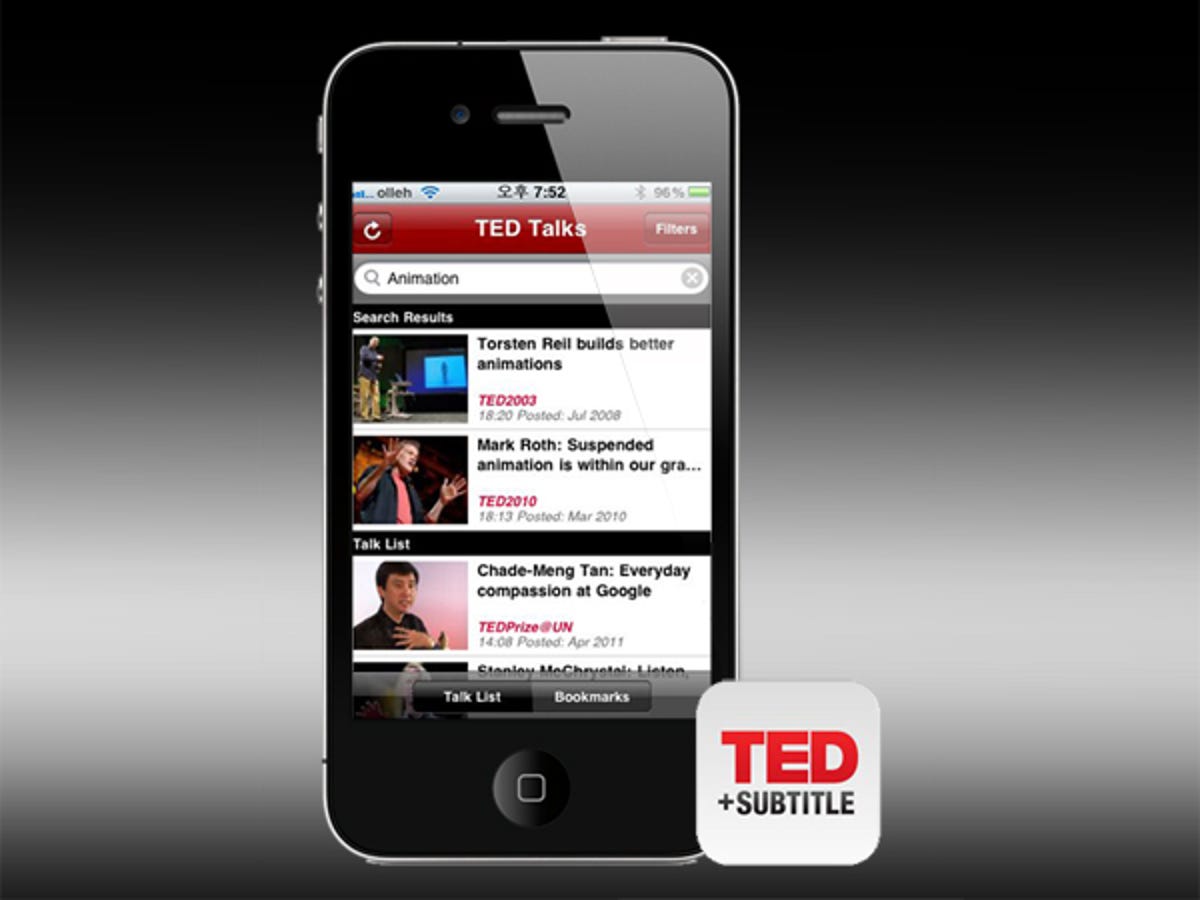Free science iPhone apps
Whether you work or study in one of the many fields of science or just like learning, there is always science to be done ... and with these free apps, there is no excuse not to.

TED+SUB: TED talks with subtitles
Whether you work or study in one of the many fields of science or just like learning, there is always science to be done ... and with these free apps, there is no excuse not to do it.
Note: Free Android and BlackBerry equivalents have been provided where available.
FreeTED presents talks from some of the world's most fascinating people: education radicals, tech geniuses, medical mavericks, business gurus and music legends. There is no official TED app, but TED is supportive of independent app-creators providing the content. We like this one because it subtitles the talks — handy for when you're in a situation where you need your knowledge fix but can't use audio.
Skeptical Science
Exoplanet
Astronomers have identified over 500 planets outside our solar system. Everything you wanted to know about 539 of them is here in the Exoplanet app: physical parameters, animations, where you can see it in the sky, details of the host star and the system in which the planet can be found, information on detection methods and links to scientific publications. You can also enable push notifications that let you know when a new exoplanet is discovered.
The Chemical Touch: Lite Edition
If you've ever found yourself in need of a quick periodic table on-the-go, this app is for you. One-touch operation allows you to quickly view each element on the table, and you can view mass, density, melting and boiling point, electro-negativity, specific heat, atomic and covalent radiation, Delta H fusion and vaporisation and ionisation. Unless you're a chemistry student or a scientist, you probably don't technically need all that information, but you never know when you might find yourself wanting it.
Molecules
Molecules lets you view three-dimensional models of molecules. You can zoom with multi-touch, rotate the molecule with touch operation, or set the molecule to gently spinning, which is nothing if not mesmerising. New molecules can be downloaded from the RCSB Protein Data Bank. You can also tap the information icon to check out basic information, such as a short description, statistics, who discovered the molecule and its sequence.
Free Graphing Calculator
This is more than just a calculator: it's a graphing calculator. Firstly, it has a comprehensive scientific calculator; added graphing capabilities allow you to graph up to four equations simultaneously, with labels and zoom. It also has a built-in unit converter, constants for scientific calculations and a bunch of other nifty features.
Space Images
Yep, pretty straightforward: this app shows you pictures of and from space from NASA's Jet Propulsion Laboratory. Recent images include photos from space of the ongoing volcanic eruptions in Iceland, and favourites include gorgeous nebulae and unusual photos of planets. Images are accompanied by an explanation of the photo, and you can save the images to your iPhone or iPod Touch, or email them to your friends. Maybe not so educational, but pretty and interesting.
Pi Cubed Lite
This is for someone probably a little bit more hardcore mathematically minded than we are. It's a visual calculator with a touch interface that allows you to create formulae using an interactive menu. These are then evaluated instantly. It's almost like writing on a chalkboard, with pinch-zooming and touch-panning. You can also save up to five calculations, and the app supports logarithms, trigonomic functions, arbitrary roots, exponents and factorials.
3D Brain
The perfect app for budding brain surgeons, zombie gourmands or anyone with an interest in brain anatomy, 3D Brain lets you explore 29 interactive brain maps, with zoom and rotate. Each section gives you detailed information on exactly what each brain region does, what happens when it is injured, and how it can be affected by mental illness.
Science Glossary
This app is exactly what it sounds like: a glossary of scientific terminology and short biographies of important scientists throughout history. You can view random terms, search the index for a specific term and, when you're reading a definition, tap highlighted terms to go to the entry for that term. It's easy to navigate and is a good resource for when you need to look something basic up on the go, or just a fun reading app for those who like to top up their science knowledge every now and again.
Distant Suns Lite
Interested in what secrets are held in the night sky? Distant Suns Lite is an astronomy app that lets you explore the stars by scrolling across the heavens with touch operation and pinch zoom. Alas, you can't tap on the astronomical objects to pull up information, and the scrolling is a little awkward, but you can view constellations, information on the planets and various space phenomena by checking out the index, and "What's up" will calculate your horizon and identify what you can see in the sky, based on your current location. It's not perfect, but it's still cool, and there aren't many free astronomy apps out there.

